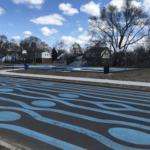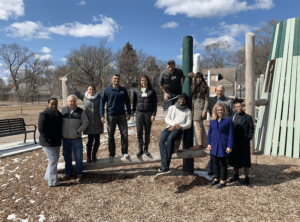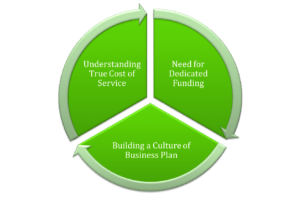Top Story
Date: March 31 – April 5, 2019
Location: Detroit, Michigan
Sponsor: Sponsored by the City of Detroit along with leadership from the public, private and philanthropic sectors of Detroit
Subject Area: 10-Minute Walk and Parks and Open Space
Panel Chair: April Anderson Lamoureux, President, Anderson Strategic Consulting, Boston, MA
Background and Panel Assignment
Parks and open space are central assets in achieving a wide range of Detroit’s needs including community stabilization, climate resilience, improved public health, and economic development. Parks and open spaces help reinforce connections and celebrate the cultural and historic significance of the people and places of Detroit. Leaders in Detroit have made significant investment in visioning, planning analysis, weighing assets and capacity, and identifying and mobilizing partners, and convening this panel is part of this work. Detroit has had an epic story of transformation and today presents a tipping point of opportunity to leverage resources and effective practices where they did not exist before. Detroit has a wealth of dedicated people and an opportunity to help people work more effectively. And it is at the beginnings of a beautiful story of sustained success.
The challenge presented to the panel was outlined in a comprehensive briefing book, articulated through conversations with nearly a hundred Detroit public space stakeholders, and seen live through site visits and tours. The panel knows money is crucial, but the challenge is also a physical one, and a human one. Recognizing these challenges, the panel was invited to help the community understand, consider and recommend suitable financial methods and models to support the city’s growing portfolio of parks, open space and trails. Specifically, the sponsors identified the funding of operational support as the immediate need of focus for the panel’s attention. The following list seeking longer-term public space sustainability were presented as issues for the panel to consider:
1. Reduce the cost of delivery of services where possible through economies of scale
2. Increase earned income where it makes sense.
3. Coordinate private, philanthropic and city government expenditures and maximize the use of existing public sector funding.
4. Find new ways to capture a portion of the economic value that comes from locating development adjacent to high-quality public spaces.
5. Examine the potential for new sources of public sector financing, including increased funding through regional or state systems.
6. Continue to expand the available pool of philanthropy, including endowment, that is aimed at public spaces, in part by communicating more clearly the value proposition for the community.
7. Achieve sustainability while preserving and increasing access for long-time residents of the city.
8. Factors funders should consider in ranking the urgency and sequencing of investments
9. Tangible and intangible characteristics that create a wonderful public space.
The discussion around the sustainability of parks and open space is critical to a city emerging from years of disinvestment. Given this experience, it is commendable that all stakeholders have recognized that the success of the city’s parks and open spaces is integral to the success of the city as a whole—including downtown and Midtown specifically as well as the neighborhoods.
Call to Action
The time for addressing these issues is now appropriate with city leadership, business leaders, and neighborhood groups all creating synergies/momentum to realize that parks can serve to enhance economic revitalization. Detroiters must act to:
- Create a strategic framework with strong leadership to identify priorities, defined roles and responsibilities, and create a unified work plan for advancing this work on various levels in a coordinated fashion.
- Diversify and identify dedicated funding for ongoing maintenance and operations. A best practice nationwide for those communities that excel in providing and sustaining a high-quality parks, recreation and open space experience tend to have dedicated funding sources that can help insulate them against market, economic and political fluctuations.
- Prioritize an equitable solution that leads to shared benefits throughout the city for all Detroiters. The African American population currently accounts for over 80 percent of the city’s population. With a deep history of racial disparities, it is important that the strategic framework does not perpetuate/exacerbate the problem.
- Encourage and enfranchise neighborhood groups as partners since they have organized when the city has not. As city services returned, there is an opportunity to better define roles and leverage mobilized groups.
Path Forward
The panel recommends a variety of near-, medium-, and longer-term funding recommendations including areas like improved concessions or a casino access fee (near term); Stormwater Retention Credits or Social Impact Bonds (medium term); or, Special Assessment Districts or Riverfront dedicated as a National Monument/Historical Designation (longer-term).
In addition, there is currently a lack of consistency of structure among the entities who have ownership (financial or otherwise) over the various parks. To address this, the panel recommends looking at implementing structural reforms to better elevate parks within city government and better share resources among partners as well as form a Detroit Parks Alliance (DPA): a 501(c)3 public-private partnership which will operate as a cross-sector governing body. The DPA would coordinate communications between stakeholders as well as provide streamlined oversight and support to the various groups that currently steward the parks. The DPA would provide services above the baseline of what the city provides but would take direction from the city regarding allocation of funding to parks throughout Detroit.
Key elements to consider in creating this entity are:
- Proven track record of leadership of DPA.
- Representation of all stakeholders on governance board (government, private, philanthropic, current park stewards, community, programming providers).
- Balancing priorities to ensure equity among how/which parks are funded, while also ensuring that donations/grants make significant impact and are not dispersed among so many parks that they lose impact.




